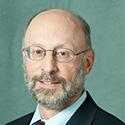07 Feb Activation of Telomerase Will Not Cure Aging
MedicalResearch.com Interview with:
Douglas P. Kiel, MD, MPH
Professor of Medicine
Harvard Medical School
Director Musculoskeletal Research Center
Institute for Aging Research, Hebrew SeniorLife
Associate Member Broad Institute of Harvard and MIT
MedicalResearch.com: What is the background for this study? What are the main findings?
Response: Why we age? and how we age?, are perennial questions that are of interest to all. The research described in this publication brings together two major and different concepts of aging – epigenetic aging, which is manifested by modifications on DNA and telomere-related aging, which is manifested by shortening of chromosome ends (telomeres). In our search for genes that could potentially affect epigenetic aging, we detected a variant of the TERT gene (whose encoded protein, telomerase maintains telomere length) to be associated with accelerated epigenetic aging. TERT is a subunit of the enzyme telomerase which is a widely known enzyme for the following reasons:
1) Telomerase has been touted as an anti-aging enzyme. It has been called a modern fountain of youth. However, some scientists have pointed out that it is unlikely to become a source of anti-aging therapies (see the review article by de Magalhães JP1, Toussaint in Rejuvenation Research (2004) .https://www.ncbi.nlm.nih.gov/pubmed/15312299) Our new results gained by the epigenetic clock also indicate that telomerase will not halt organismal aging.
2) The book “The Telomere Effect” by Nobel prize winner Elizabeth Blackburn and Elissa Epel was on the New York Times best seller list and received substantial news coverage:https://www.cbsnews.com/news/telomere-effect-book-living-younger-healthier-longer/
Our data provides a much needed understanding of the molecular drivers of the epigenetic clock and reveal a unexpected and paradoxical connection between two seemingly distinct aging clocks: the telomere clock and the epigenetic clock.
Our main finding was that variants in the human telomerase reverse transcriptase gene (TERT) were associated with increased “intrinsic epigenetic aging.”
MedicalResearch.com: What should readers take away from your report?
Response: Our study highlights the error in the notion that activation of telomerase (as advocated by some) will cure aging. Instead, our study shows that an anti-aging therapy based on telomerase expression would be accompanied by continued aging.
MedicalResearch.com: What recommendations do you have for future research as a result of this work?
Response: We will continue to study the relationship between telomerase and epigenetic aging rates in cell culture models and in other tissues. We will also investigate whether longevity and aging can be uncoupled.
MedicalResearch.com: Is there anything else you would like to add?
Response: Our work was made possible by collaborations across many studies funded by multiple grants, primarily from the NIH. Dr. Steve Horvath from UCLA, who published an article on an epigenetic clock that can be used to measure the epigenetic age of any tissue (see http://www.ncbi.nlm.nih.gov/…), led the study. I have no disclosures of relevance to this work. I am an employee of the Institute for Aging Research, Hebrew SeniorLife in Boston. Hebrew SeniorLife, an affiliate of Harvard Medical School, is a national senior services leader uniquely dedicated to rethinking, researching and redefining the possibilities of aging. Based in Boston, the non-profit, non-sectarian organization has provided communities and health care for seniors, research into aging, and education for geriatric care providers since 1903. For more information about Hebrew SeniorLife, visithttp://www.hebrewseniorlife.org, follow us on Twitter @H_SeniorLife, like us on Facebook or read our blog.
Citations:
Ake T. Lu, Luting Xue, Elias L. Salfati, Brian H. Chen, Luigi Ferrucci, Daniel Levy, Roby Joehanes, Joanne M. Murabito, Douglas P. Kiel, Pei-Chien Tsai, Idil Yet, Jordana T. Bell, Massimo Mangino, Toshiko Tanaka, Allan F. McRae, Riccardo E. Marioni, Peter M. Visscher, Naomi R. Wray, Ian J. Deary, Morgan E. Levine, Austin Quach, Themistocles Assimes, Philip S. Tsao, Devin Absher, James D. Stewart, Yun Li, Alex P. Reiner, Lifang Hou, Andrea A. Baccarelli, Eric A. Whitsel, Abraham Aviv, Alexia Cardona, Felix R. Day, Nicholas J. Wareham, John R. B. Perry, Ken K. Ong, Kenneth Raj, Kathryn L. Lunetta, Steve Horvath. GWAS of epigenetic aging rates in blood reveals a critical role for TERT. Nature Communications, 2018; 9 (1) DOI: 10.1038/s41467-017-02697-5
[wysija_form id=”3″]
The information on MedicalResearch.com is provided for educational purposes only, and is in no way intended to diagnose, cure, or treat any medical or other condition. Always seek the advice of your physician or other qualified health and ask your doctor any questions you may have regarding a medical condition. In addition to all other limitations and disclaimers in this agreement, service provider and its third party providers disclaim any liability or loss in connection with the content provided on this website.
Last Updated on February 8, 2018 by Marie Benz MD FAAD

